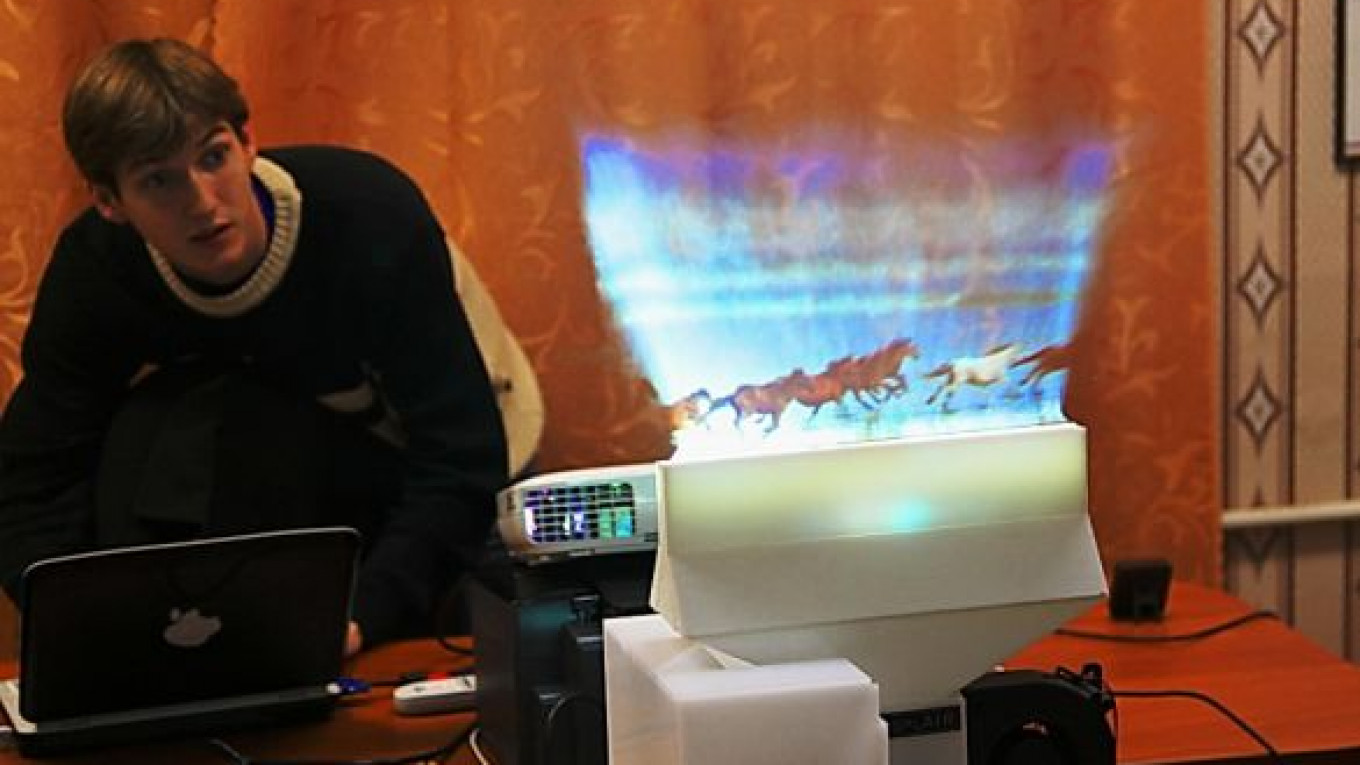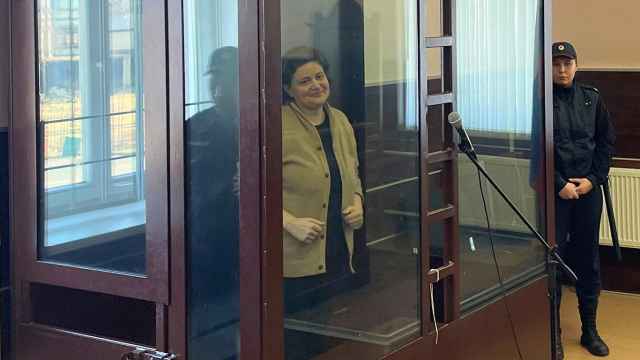Displair, an Astrakhan-based company that develops interactive players that show videos in free air instead of a screen, will be meeting with several investors soon.
About a year ago, the Displair team began visiting innovation-related conferences to market their product, PR director Mikhail Bezruk said.
The team met Marchmont Capital Partners general director Kendrick White at the Seliger 2010 forum. White liked the project so much that he invited them for free to the Marchmont annual Innovations for Business forum, which took place on Wednesday and Thursday. There the Displair team met with potential investors.
President Dmitry Medvedev has continuously pushed for modernization, but Russia remains largely a country where entrepreneurs must fend for themselves. They are banding together and finding ways to continue their work with the help of group support of domestic and international entrepreneurs.
"We need to support entrepreneurs," White said. "Real innovation comes from the bottom up."
Russia's business innovation sector has seen major changes in the last few years, White said. Among the major changes is the growth of educational forums and conferences and the rise of angel investors, or investors that provide capital for startups in early stages.
Venture capital company Sberinvest has agreed to finance 23 of 7,600 proposals that it has received over three years, board member Oleg Dyachenko said.
The reason for such a low ratio of proposals to financed projects is not the money — there is no problem with financing, Dyachenko said — it's the poor quality of the proposals. Projects were either not well thought out, "idiotic" or total shams, Dyachenko said.
Poor innovation infrastructure and education is to blame for the lack of good ideas, experts said at the Innovations for Business forum in Moscow on Wednesday.
Many entrepreneurs see the lack of an organized innovation business network as the biggest hindrance to innovation.
Everything is on a regional level and unorganized, Bezruk said. It is difficult for entrepreneurs to understand where to turn for help.
"Every entrepreneur is on his own," Bezruk said.
It is pointless to wait for any real support from the government on this issue, at least until after the election, Skolkovo program director Аlexei Germanovich said. Entrepreneurs must share their experiences and help one another in order to grow.
Since early 2011, RUS, a small and midsized business organization, has been working to organize a nationwide network of professionals to offer support to one another and a new generation of entrepreneurs. The members currently include more than 60,000 graduates of the presidential higher management training program.
RUS's main objectives include fostering communication among business innovators throughout Russia to offer advice and support. Plans for the network include a web site, currently under construction, and local chapters in Russia's regions.
Although the number of innovative projects in Russia remains relatively small, business incubators and technoparks have popped up around the country. A third of Russia's technoparks are "very successful," Sarov technopark director Andrei Shpilenko said.
Despite rampant brain drain, successful innovations are taking place in Russia's regions.
Andrei Khusid, general director of I&I Group, a business innovation consulting company, also runs the Higher School of Economics business incubator in Perm. The year-old program already has six startups.
"Innovators want to live in Tomsk and Astrakhan," White of Marchmont Capital said.
Indeed, Displair had offers from foreign companies including Cisco and Siemens, but turned them down, despite the lucrative fees and the difficult entrepreneurial environment in Russia.
"I was raised that way, I guess — to build Russian business in Russia," said Bezruk of Displair. "Call it patriotism."
A Message from The Moscow Times:
Dear readers,
We are facing unprecedented challenges. Russia's Prosecutor General's Office has designated The Moscow Times as an "undesirable" organization, criminalizing our work and putting our staff at risk of prosecution. This follows our earlier unjust labeling as a "foreign agent."
These actions are direct attempts to silence independent journalism in Russia. The authorities claim our work "discredits the decisions of the Russian leadership." We see things differently: we strive to provide accurate, unbiased reporting on Russia.
We, the journalists of The Moscow Times, refuse to be silenced. But to continue our work, we need your help.
Your support, no matter how small, makes a world of difference. If you can, please support us monthly starting from just $2. It's quick to set up, and every contribution makes a significant impact.
By supporting The Moscow Times, you're defending open, independent journalism in the face of repression. Thank you for standing with us.
Remind me later.






